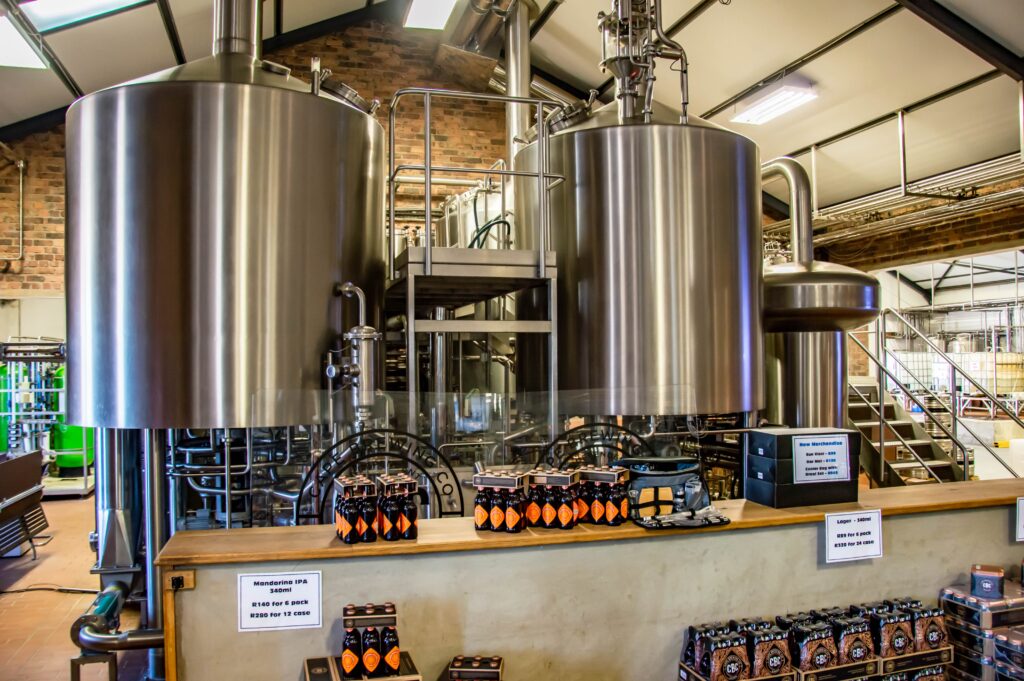Brewing is the intricate process of turning raw materials such as water, malt, hops (type of plant flower), and yeast into beer. This process involves several carefully controlled steps, each contributing to the flavor, aroma, and characteristics of the final product. Inventory accounting is crucial at each stage to ensure accurate tracking of raw materials and finished goods. Let’s delve into the brewing process and its associated inventory accounting steps:
I. Malting
Process: Barley grains are soaked, germinated, and then dried in a kiln (kiln is a thermally insulated chamber, a type of oven) to stop the germination process. This develops enzymes required for the mashing process.
Inventory Accounting: Track incoming barley stock, accounting for variations in moisture content. The malting process generates malted barley inventory.
II. Mashing
Process: Milled malt is mixed with hot water to extract fermentable sugars, creating a mixture called “mash.” The mash is heated at various temperatures to activate enzymes.
Inventory Accounting: Account for malt used in the mash process. Measure and record water usage for accurate cost allocation.
III. Boiling
Process: The mash is boiled, and hops are added at different stages for bitterness, flavor, and aroma. Boiling sterilizes the wort (unfermented beer).
Inventory Accounting: Track hops used during boiling. Record energy consumption for boiling and its associated costs.
IV. Fermentation
Process: After boiling, the wort is cooled and transferred to a fermenter. Yeast is added, and fermentation begins, converting sugars into alcohol and carbon dioxide.
Inventory Accounting: Monitor yeast quantities and usage. Record energy used for cooling. Measure and record the volume of wort transferred.
V. Conditioning
Process: Beer undergoes maturation or conditioning, allowing flavors to develop and the beer to clarify.
Inventory Accounting: Monitor the duration of conditioning and associated costs (storage, maintenance, etc.).
VI. Filtration and Packaging
Process: The beer is filtered to remove any remaining solids, carbonated, and then packaged into bottles, cans, or kegs.
Inventory Accounting: Track packaging materials (bottles, cans, caps, labels) and their consumption. Record any losses during filtration.
VII. Distribution and Sales
Process: Packaged beer is distributed to retailers or directly to consumers for sale.
Inventory Accounting: Monitor inventory levels of finished goods. Record sales revenue and associated costs (shipping, distribution, marketing).
VIII. Quality Control
Process: Throughout the brewing process, quality checks are performed to ensure consistency and taste.
Inventory Accounting: Allocate costs related to quality control equipment, personnel, and materials used.
IX. Waste Management
Process: By-products like spent grains and trub (sediment) are generated and often repurposed or disposed of.
Inventory Accounting: Account for waste disposal costs and explore any revenue-generating options from by-products.
Conclusion
Magnus Consulting specializes in providing comprehensive accounting and financial consulting services to businesses in various industries, including the brewing sector. Our team of experienced accountants and financial experts can support breweries by:
- Cost Analysis: We can help breweries analyze and optimize their cost structures at each stage of the brewing process, ensuring accurate inventory accounting and cost management.
- Tax Planning: We provide guidance on tax strategies specific to the brewing industry, helping businesses minimize tax liabilities and comply with tax regulations.
- Financial Reporting: Our experts assist in preparing accurate financial statements, enabling breweries to make informed decisions and attract potential investors.
- Inventory Management: We help businesses implement efficient inventory management systems to track raw materials, work-in-progress, and finished goods.
- Compliance: Our team ensures breweries adhere to accounting standards and industry-specific regulations.
By partnering with Magnus Consulting, breweries can enhance their financial performance, streamline operations, and achieve long-term sustainability in a competitive market. We are committed to providing tailored solutions that meet the unique needs of each client, ultimately helping them thrive in the brewing industry.


